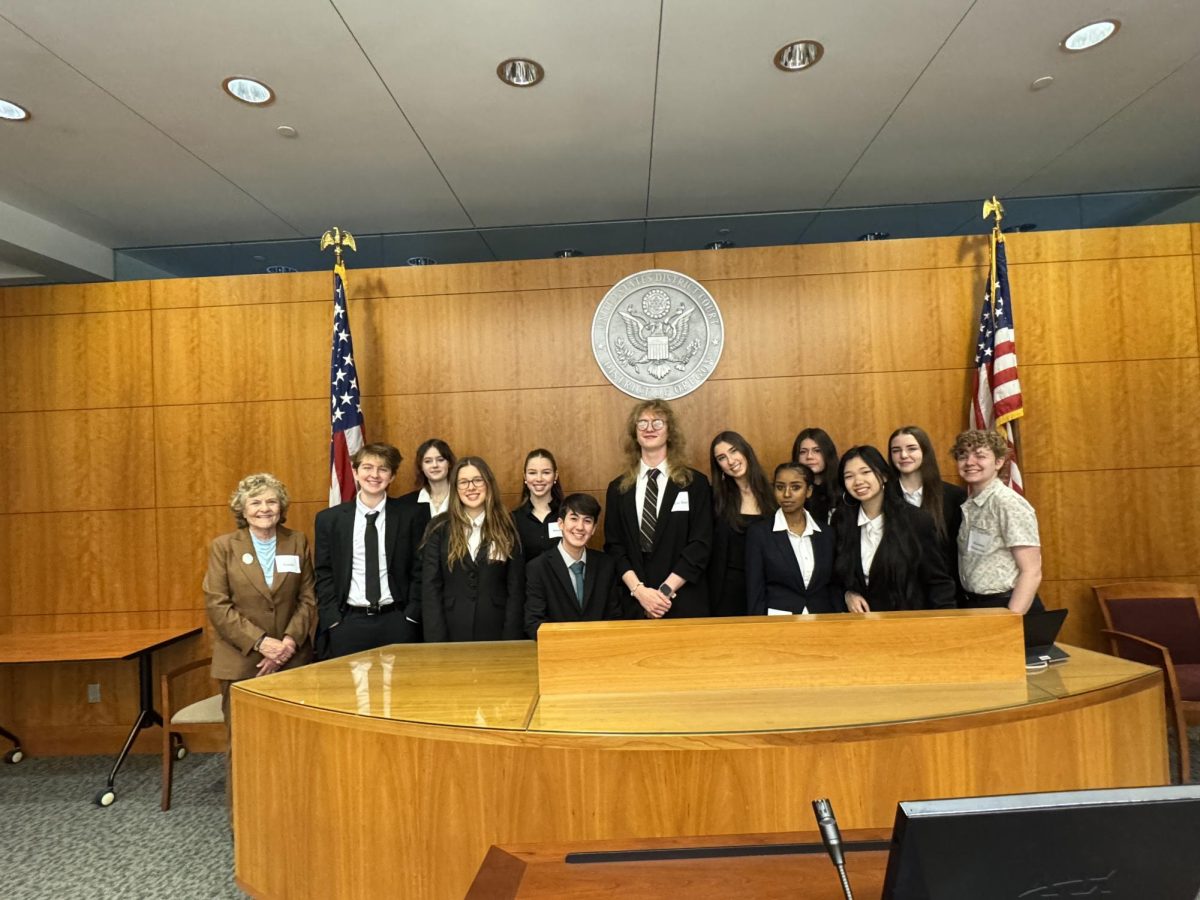
“A Catholic Response to Gender Identity” was released on Jan. 25, 2023 by Portland Archbishop Alexander K. Sample. On this day, the Archbishop also celebrated his anniversary of 17 years as a Bishop. This document, shared online in the form of a “FlippingBook,” highlighted many new expectations Catholic schools in the city are expected to follow, as well as a general recommendation for how Catholics should think about gender identity and the people it affects.
On the first page of this document, Sample wrote, “I hope that you will find in these guidelines, as I do, the beauty of the Church’s timeless teachings, the depth of God’s love for us, and his desire for us to love one another, even amid what can be a confusing and complicated cultural reality.”
The “confusing and complicated cultural reality” that Sample refers to is a reality where people who identify outside the gender binary can be accepted, both in public and in their schools. The 17-page document outlines four sections attesting to the Catholic Church’s view on people who don’t conform to the binary, and how people of the church should act to support them while still upholding fidelity to the truth of God’s word.
The first section, entitled “The Truth and Dignity of the Human Person,” talks about the Catholic understanding of what makes a person a person, and how one’s gender is rooted “in sexed embodiment” and that “sexual difference is thus one way that God reveals himself to us and through us.” This section is an explanation of what Sample writes in later sections, explaining why the body you are assigned at birth is God-given, and that it goes against the faith to change it.
Section two, “Gender Identity Theory,” talks about the transition process for those outside of the gender binary. The section sets out the four steps of Gender Affirming Care (GAC); first is a social transition, followed by puberty blockers, then hormone therapy, and lastly, gender-affirming surgeries. The main theme of this section surrounds the endorsement of social transition in children outside of the binary, as it is the first step toward “unnecessary medicalization.” Sample writes, “To some, supporting actions of social transition may seem benign, even humane, such as using someone’s preferred pronouns and actively affirming his or her perceived gender.” He then goes on to comment on how a Dutch study found that social transition will lead to an increased likelihood of medicalization. This study says nothing about social transition, but states that, “currently, withholding physical medical interventions in these cases seems more harmful to wellbeing in both adolescence and adulthood.”
The third section is the “Pastoral Guidelines” that Sample wrote for Catholic institutions in the area. In the opening paragraph, Sample writes that “Catholic institutions and programs should not endorse gender identity theory nor enable any form of gender transition, whether social or medical.” Sample goes on to explain that this means names, pronouns, uniforms, bathroom use, and sports participation should be determined by the sex one was assigned at birth “rather than self-perceived gender identity.” This section also states that no Catholic institution should have any kind of signage that could be endorsing gender identity theory.
The final section, “Whole-Person Affirmation: A Catholic Response” describes that, while no child should receive GAC, they are still “infinitely loved” and that the Catholic Church will continue to affirm the belovedness of every person regardless of their perception of their gender identity.
This statement has since been shared with Catholic institutions in the city. Though, according to St. Mary’s Academy senior Leo Adams-Pastor (he/they), no teacher or administrator at their high school has enforced any of the guidelines in the past weeks. Despite this, the majority of students are still uncomfortably aware of the guidelines and what they could mean for the school going forward; as Adams-Pastor says, “it just feels like waiting for the other shoe to drop.”
The only thing Adams-Pastor has thus far heard a teacher say regarding the guidelines is that “she was incredibly disappointed in the guidelines that, in short, she felt it was hard to feel the community of the Catholic Church at this time.”
Though, of course, the world is not always the kindest to people outside of the binary, Adams-Pastor discussed their experience with identifying as non-binary, saying that, “some teachers don’t care how you introduce yourself and will use the wrong pronouns.” Adams-Pastor legally changed their name when they were much younger, and so doesn’t fear deadnaming as much for themself, though they expressed that it is still a prominent fear for many students. On Adams-Pastor’s estimate, at least 10 students per grade use names that are not the ones assigned at birth.
When I attempted to contact teachers at many of Portland’s Catholic high schools, only two responded, stating that they could not participate in interviews, and instead directed me to another email, from which I never got a response.
Alexander Sample’s position on this topic will undoubtedly influence and impact members of the church, especially the youth to whom his statement refers and targets. Catholic students are aware of this in their studies and now wait, in Adams-Pastor’s words, “uneasily” for the day something shifts and lines get crossed.
































